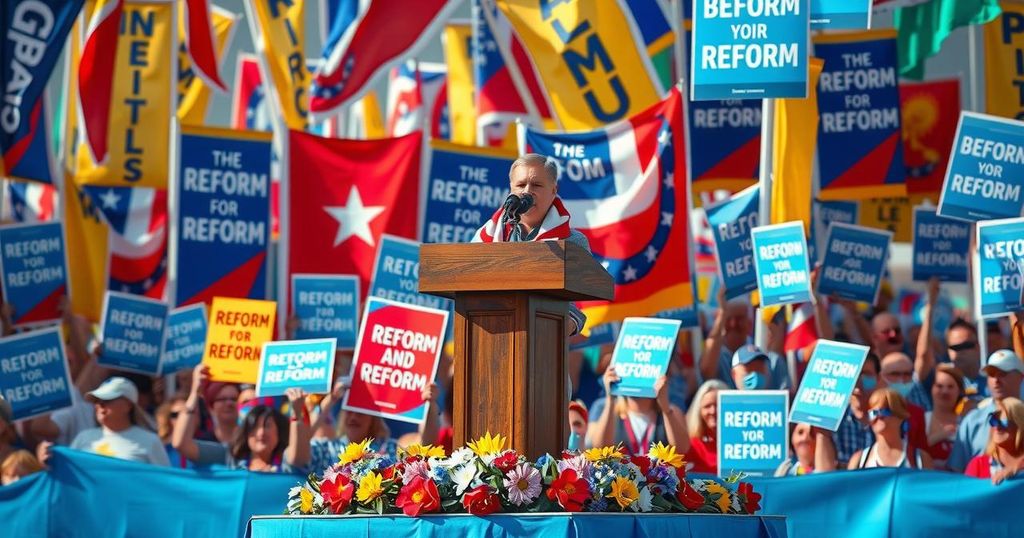Colombian President Gustavo Petro has called for a special election to support his labor and health reforms, which face political blockades. At a rally in Bogotá, he urged citizens to challenge lawmakers opposing these changes. The plebiscite aims to allow voters to approve or reject stalled legislation, but analysts question the potential for high voter turnout in the upcoming elections.
On March 18, 2025, President Gustavo Petro of Colombia addressed a rally in Bogotá, calling for a special election to support his stalled labor and health reform proposals. Despite facing resistance from centrist and right-wing politicians, Petro expressed determination to organize a plebiscite allowing voters to approve or reject critical reforms that have not achieved consensus in Congress.
During his speech, Petro urged his supporters to challenge lawmakers he accused of being self-serving and blocking essential changes for the public good. He emphasized that the populace has endured significant hardships due to what he called the greed of corrupt politicians. His rally coincided with protests led by labor unions advocating for the reforms.
Petro, the first leftist president in Colombia, highlighted the struggles his government faces in the Senate, where his Historical Pact movement holds only a small fraction of the seats. To encourage public participation in the protests, he granted a day off to national government workers, resulting in significant turnout at the demonstrations in Bolivar Square.
The proposed special election, also termed a popular consultation, requires Senate approval and mandates that one third of registered voters participate for the results to be binding. Political analysts have raised concerns about mobilizing sufficient voter turnout amid upcoming elections. Nevertheless, some argue that the special election could energize Petro’s base ahead of congressional elections in March.
In his 2022 campaign, Petro promised to transform healthcare by eliminating insurance companies and establishing a more efficient government-managed system. However, his initiatives for reform have repeatedly faced opposition, with critics asserting that they could empower bureaucrats and disrupt current systems. Additionally, Petro’s labor reform proposals, including increasing pay for nighttime workers, were set aside due to fears that they might negatively affect employment rates amongst informal workers, who constitute a significant portion of Colombia’s labor market.
President Gustavo Petro’s call for a special election underscores the ongoing struggle to advance labor and health reform in Colombia. His appeals to supporters reflect a strong desire for major changes, despite significant political obstacles. The upcoming plebiscite may provide an opportunity to galvanize public support, yet its success will largely depend on voter turnout and the capacity of Petro’s government to effectively mobilize the electorate.
Original Source: apnews.com




